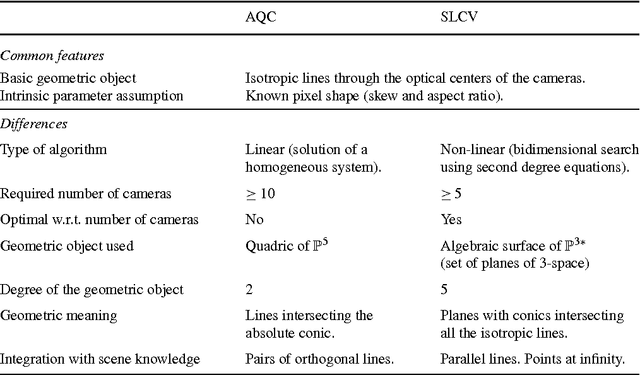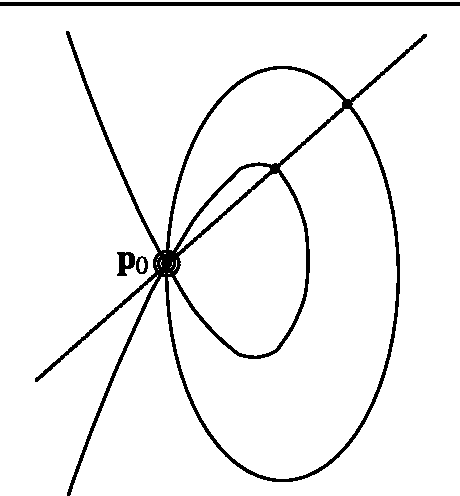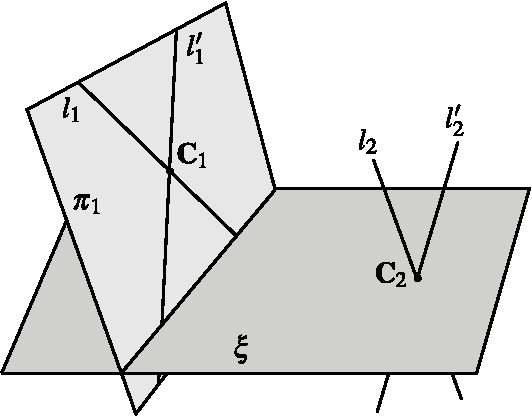Autocalibration with the Minimum Number of Cameras with Known Pixel Shape
Paper and Code
Jan 10, 2014



In 3D reconstruction, the recovery of the calibration parameters of the cameras is paramount since it provides metric information about the observed scene, e.g., measures of angles and ratios of distances. Autocalibration enables the estimation of the camera parameters without using a calibration device, but by enforcing simple constraints on the camera parameters. In the absence of information about the internal camera parameters such as the focal length and the principal point, the knowledge of the camera pixel shape is usually the only available constraint. Given a projective reconstruction of a rigid scene, we address the problem of the autocalibration of a minimal set of cameras with known pixel shape and otherwise arbitrarily varying intrinsic and extrinsic parameters. We propose an algorithm that only requires 5 cameras (the theoretical minimum), thus halving the number of cameras required by previous algorithms based on the same constraint. To this purpose, we introduce as our basic geometric tool the six-line conic variety (SLCV), consisting in the set of planes intersecting six given lines of 3D space in points of a conic. We show that the set of solutions of the Euclidean upgrading problem for three cameras with known pixel shape can be parameterized in a computationally efficient way. This parameterization is then used to solve autocalibration from five or more cameras, reducing the three-dimensional search space to a two-dimensional one. We provide experiments with real images showing the good performance of the technique.
 Add to Chrome
Add to Chrome Add to Firefox
Add to Firefox Add to Edge
Add to Edge